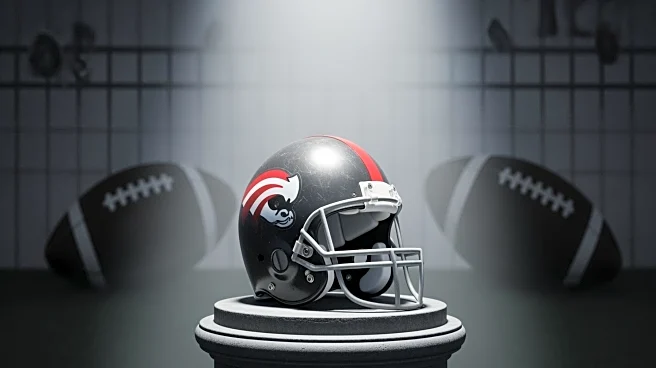What's Happening?
Warren McVea, a former running back for the Kansas City Chiefs and Cincinnati Bengals, has died at the age of 79. His daughter, Tracey Ellis, confirmed that McVea passed away in Los Angeles after a prolonged illness. McVea was drafted by the Bengals in the fourth
round of the 1968 NFL draft and was later traded to the Chiefs. Over his career, he accumulated 1,186 rushing yards and 11 touchdowns in 56 games. McVea's most notable season was in 1969 when he helped the Chiefs secure a victory in Super Bowl IV against the Minnesota Vikings. Beyond his NFL career, McVea was a pioneering figure in college sports, becoming the first Black athlete to receive a football scholarship from a major Texas university, the University of Houston.
Why It's Important?
Warren McVea's legacy extends beyond his achievements on the football field. As a trailblazer in American sports, he broke racial barriers and paved the way for future generations of Black athletes. His success at the University of Houston and in the NFL challenged the status quo and demonstrated the potential for inclusivity in sports. McVea's story is a testament to resilience and determination, inspiring not only athletes but anyone facing adversity. His contributions to the game and society highlight the ongoing impact of sports figures in promoting social change and equality.
What's Next?
The passing of Warren McVea may prompt reflections on the progress made in racial equality within sports and the ongoing challenges that remain. Tributes from former teammates, sports organizations, and fans are likely to celebrate his contributions to the game and his role as a pioneer. The NFL and the University of Houston may consider honoring his legacy through commemorative events or initiatives that continue to support diversity and inclusion in sports.
Beyond the Headlines
Warren McVea's life and career underscore the broader cultural shifts in American sports during the 20th century. His achievements highlight the intersection of sports and civil rights, illustrating how athletes have historically been at the forefront of social change. McVea's story may also serve as a reminder of the importance of representation and the ongoing need to address racial disparities in sports and beyond.















